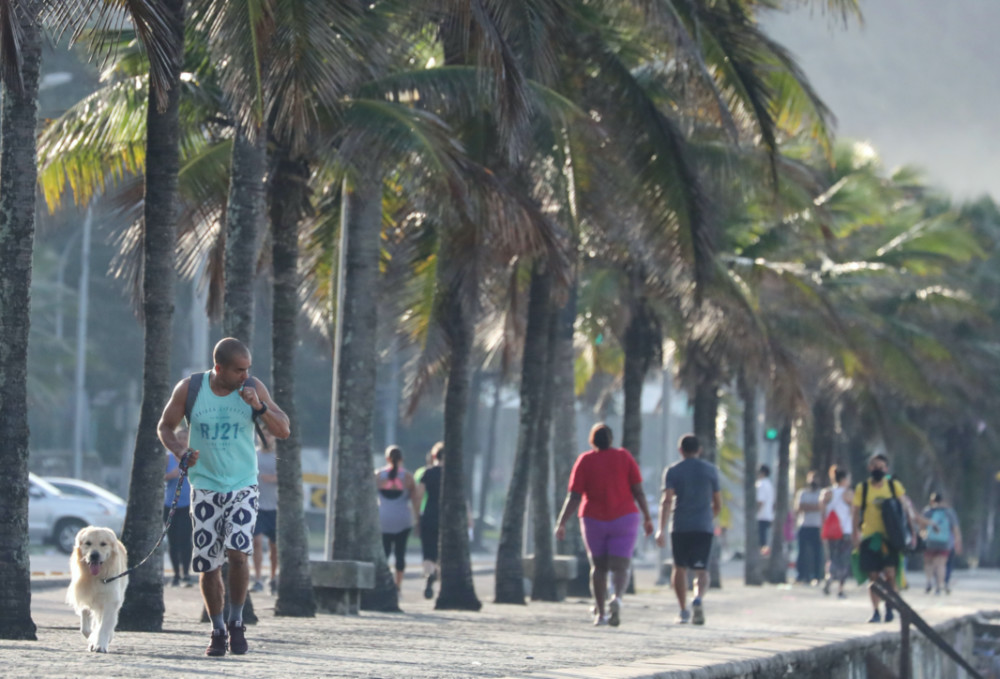Rome, Italy
Thomson Reuters Foundation
More people will die of hunger caused by the pandemic than of coronavirus this year, according to The Hunger Virus, a report from Oxfam.
Poor countries like war-torn Yemen are at risk but the global aid charity also identified several middle-income countries as new epicentres of hunger where millions could be pushed to the brink.

People walk next to Sao Conrado beach amid the coronavirus disease (COVID-19) outbreak, in Rio de Janeiro, Brazil, on 12th June. PICTURE: Reuters/Sergio Moraes/File photo.
These developments come at a time when some of the world’s biggest food and drink companies are continuing to make a profit, said the report.
Here are the key takeaways:
The bigger picture
The pandemic has led to mass unemployment and plummeting incomes. Less well-known is the massive disruption to food production.
Travel restrictions and illness amongst employees mean farmers have been unable to plant or harvest crops which could have knock-on consequences for millions of people.
Which middle-income countries are at risk?
In Brazil, which currently has the world’s second highest death toll and infection rates of the coronavirus after the United States, millions of poor workers with little or no savings have lost their jobs and incomes, Oxfam said.
Yet as of late June, only 10 per cent of financial support promised by the federal government had been distributed, it said.
In India, a nationwide lockdown in late March made an estimated 40 million people, predominantly lower-caste migrant workers making a living as domestic workers, street vendors or daily wage labourers on construction sites, jobless. The sudden closure of early childcare centres also meant more than 95 million children from poor communities no longer get a hot midday meal.
In South Africa, where weekly polling has been conducted since the start of lockdown, one in three adults surveyed said they were going to bed hungry, and a fifth had lost weight because of a lack of food.
The country is planning a multi-billion stimulus package but four million undocumented migrants are excluded.
How will women be impacted?
Women, and women-headed households, are more likely to go hungry because of systemic discrimination. They earn less than men – in South Africa, men earns 27 per cent more on average – and own fewer assets such as land.
They also make up a large proportion of informal workers that have been hit hardest by the economic fallout of the pandemic, and saw a dramatic increase in unpaid care work as a result of school closures.
Is this affecting food and drink companies?
Despite rising hunger, some of the world’s biggest food and drink companies are continuing to make a profit, Oxfam said, which compiled data from multiple sources to calculate the amount of dividends.
Eight companies, including Coca-Cola, Danone and Nestle paid out $US18 billion to shareholders since January, a figure 10 times more than has been requested by the United Nations in its COVID-19 appeal to stop people going hungry, it said.
What next?
Spiralling inequality and hunger could lead to conflict and political instability fuel mass migration, according to food experts. Soaring food prices in 2007 and 2008 led to riots and protests around the world, the UN said.






